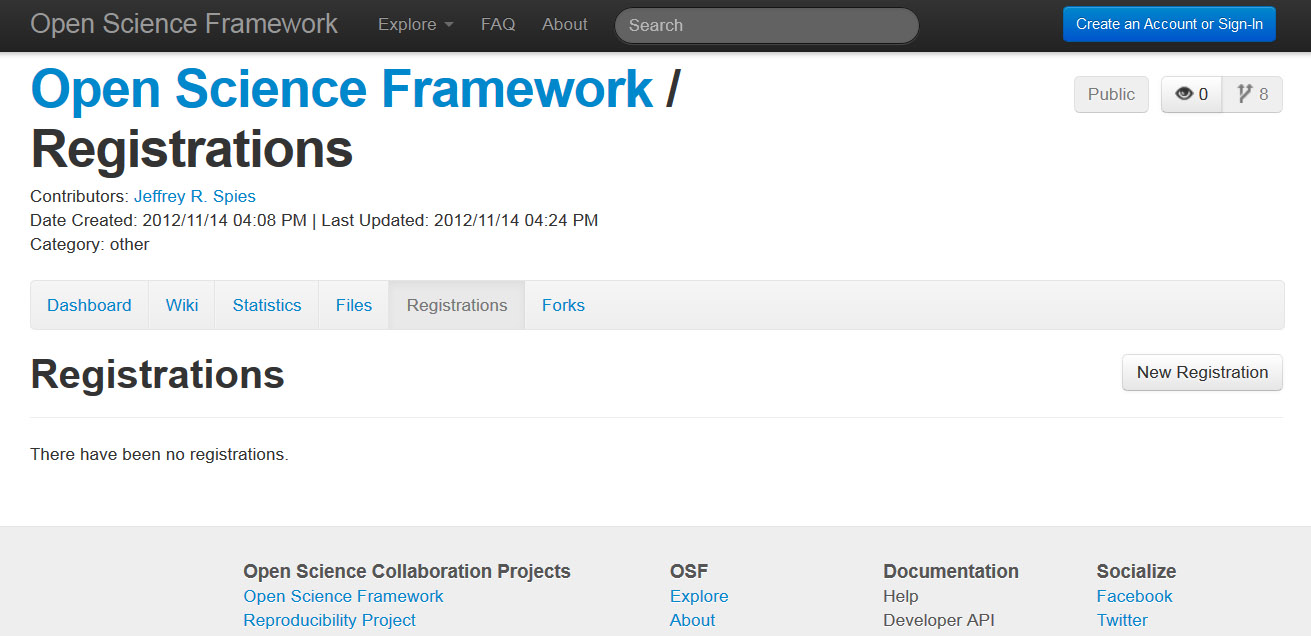A number of scientists have been vocal proponents of study pre-registration, in which detailed methodological and statistical plans for an experiment are registered in advance of data collection. The admirable goal is to eliminate questionable research practices such as failing to report all of a study's dependent measures, deciding whether to collect more data after looking to see whether the results are significant, and selectively reporting studies that 'worked.' Along these lines, the journal Cortex has recently launched a new type of article called Registered Reports, largely through the efforts of Dr Chris Chambers:
Unlike conventional publishing models, Registered Reports split the review process into two stages. Initially, experimental methods and proposed analyses are pre-registered and reviewed before data are collected. Then, if peer reviews are favourable, we offer authors “in-principle acceptance” of their paper. This guarantees publication of their future results providing that they adhere precisely to their registered protocol. Once their experiment is complete, authors then resubmit their full manuscript for final consideration.
Many of these same researchers are also strong advocates for publication reform, some even calling for journals to be eliminated altogether in favor of post-publication, crowd-sourced review and reputation ranking. But supporters of both pre-registration and the Open Science Framework haven't yet utilized its capability to submit their new work (as opposed to the Reproducibility Project for replications).
Since calls for pre-registration of basic research studies have been ongoing for years, perhaps its proponents have been too conservative with taking matters into their own hands. One might even say there's a distinct lack of risk-taking among the strongest believers. What's to prevent them from pre-registering studies in public databases or on their own blogs (without formal peer review but perhaps soliciting comments)? Or publishing a Study Protocol in a BMC journal (like @SallyScientist did)?
You know, Unilaterally Raising the Scientific Standard... Jona Sassenhagen has already done this by registering his study in the German Clinical Trials Register. Why haven't more followed suit? Or maybe they have, and I just don't know about it. If that's the case, please enlighten me in the comments.

No comments:
Post a Comment